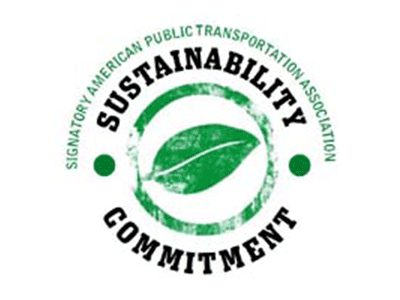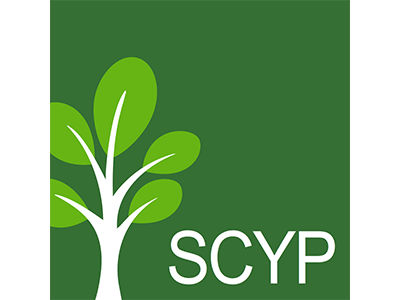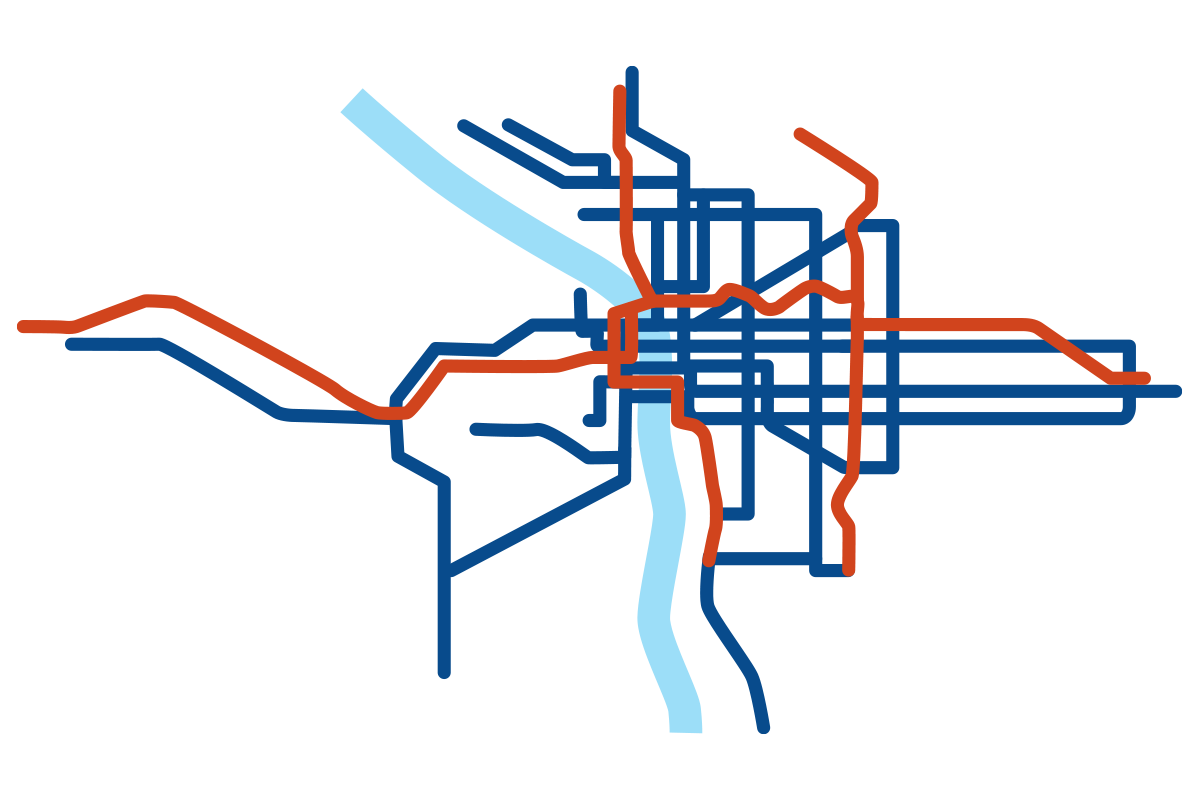
Cleaner Environment
Part of what makes transit great is that it’s an environmentally responsible way to get around. Taking the bus and MAX instead of driving brings a host of sustainable benefits to the Portland area, and we’re always coming up with ways to do more.
Completed
100% Renewable Energy
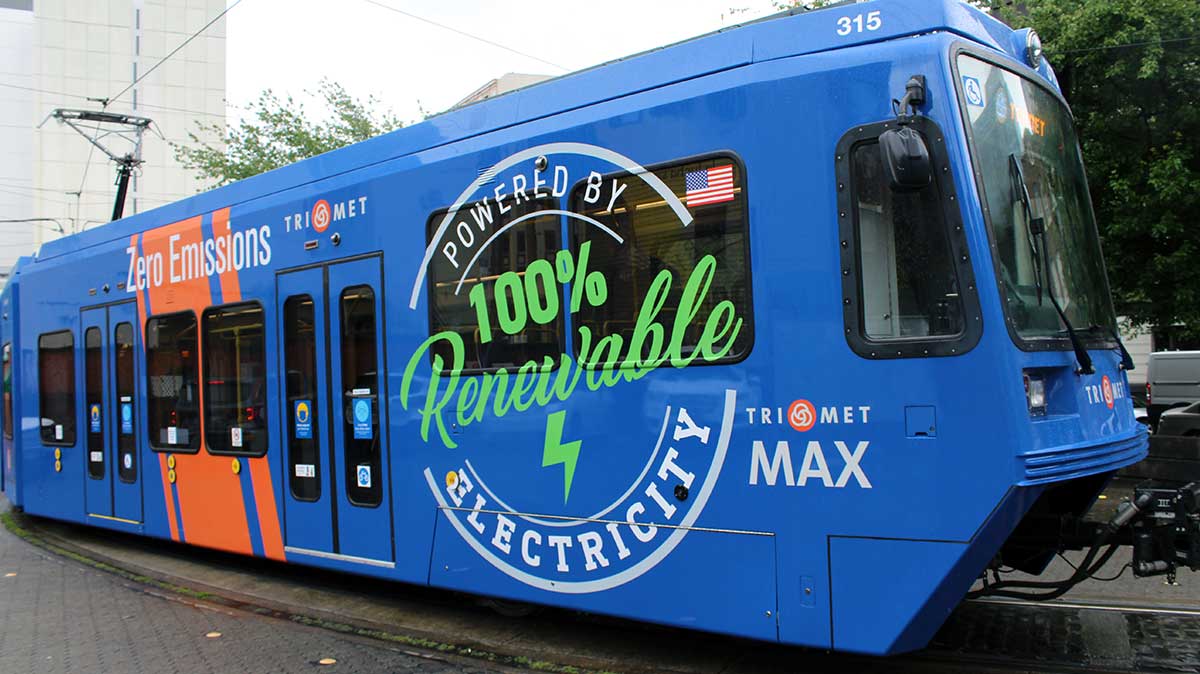
MAX, our electric buses and all of our facilities are 100% powered by renewable electricity. This reduces our greenhouse gas emissions by nearly 24%. All electricity we purchase now comes from natural resources such as the sun and wind.
In Progress
Converting to a Greener Bus Fleet
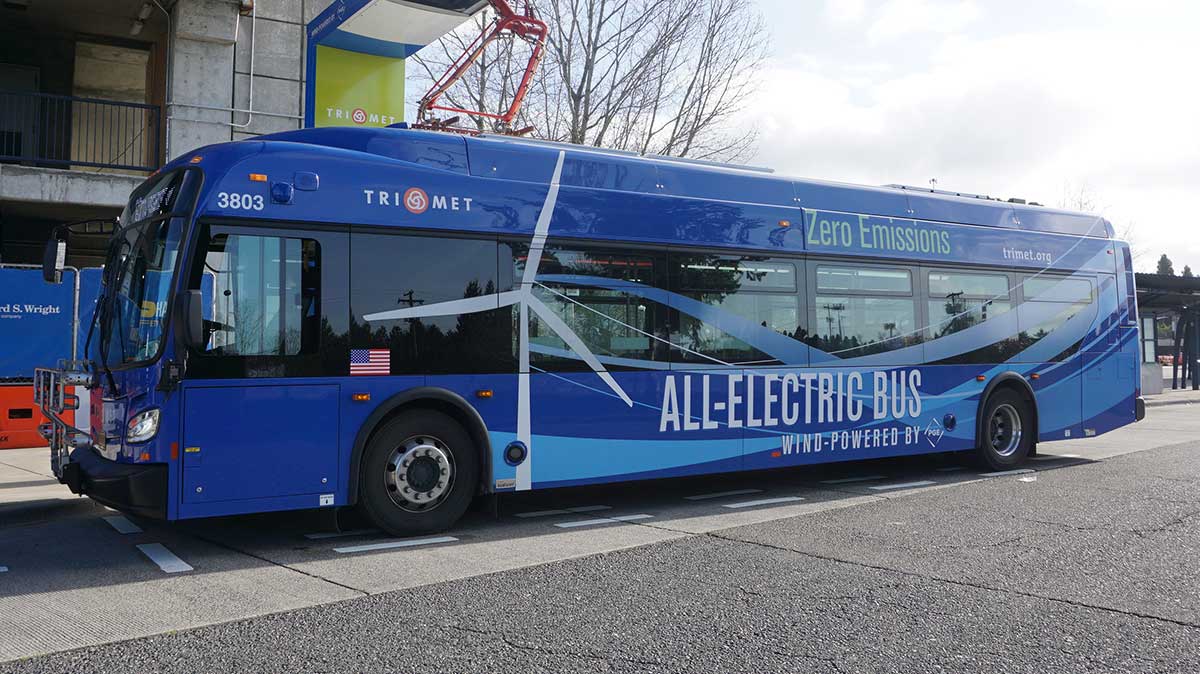
Our goal is to transtion to a zero-emissions bus fleet by 2040. Right now, we’re testing three types of battery-electric buses. They include short-range electric buses that charge periodically throughout the day and long-range electrics that are meant to go all day before needing to charge. The third type of electric buses being tested were originally diesel buses that have been converted to all electric.
To reduce our carbon footprint while we make that transition, we’re running our fixed-route diesel buses on renewable diesel. The cleaner-burning fuel lowered the greenhouse gas emissions from our bus fleet by about 61% compared to the biodiesel blend we had been using. As Oregon’s largest consumer of diesel, we’re leading the state’s transportation industry toward a cleaner air future.
Completed
Making Transit More Sustainable
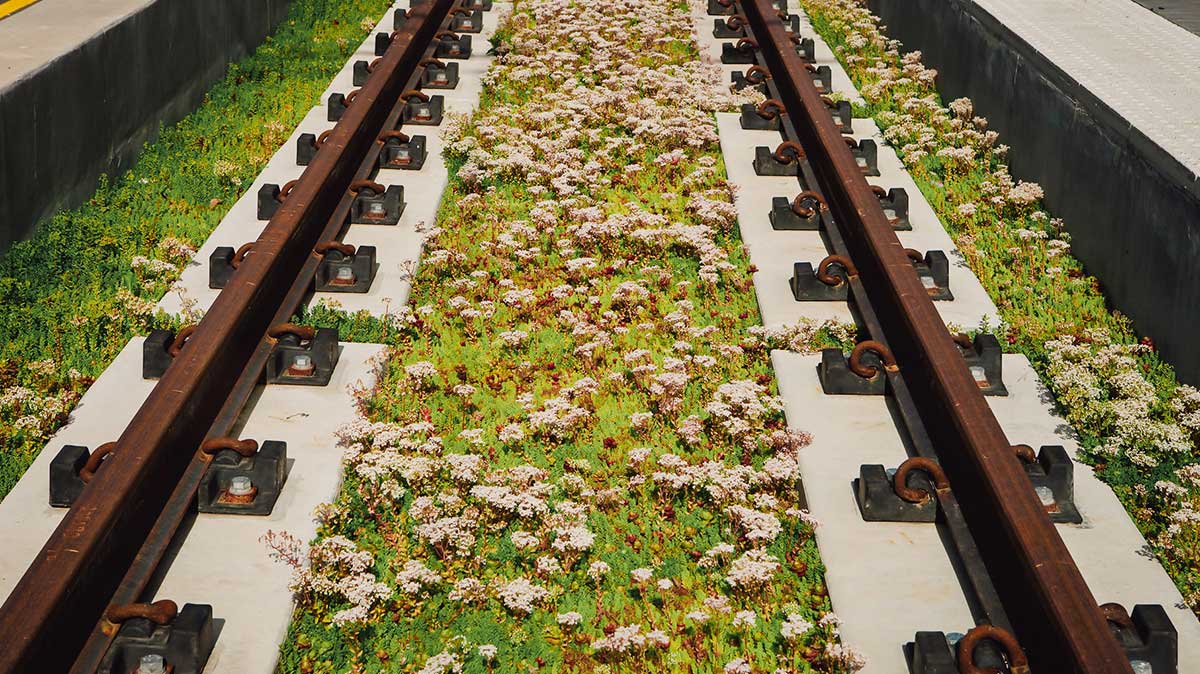
For more than a decade, we’ve been building sustainable elements into our transit projects, like bioswales to filter and slow stormwater runoff. At the SW Lincoln/3rd Ave MAX Station, our innovative eco-track provides a vegetated trackway that reduces runoff and flooding.
The solar panel array near Portland State University — the largest in Downtown Portland — generates 64,000 kilowatt hours of electricity and saves tons of CO2 every year. We’ve also installed solar panels on Orange Line shelters.
In Progress
Improving our Facilities
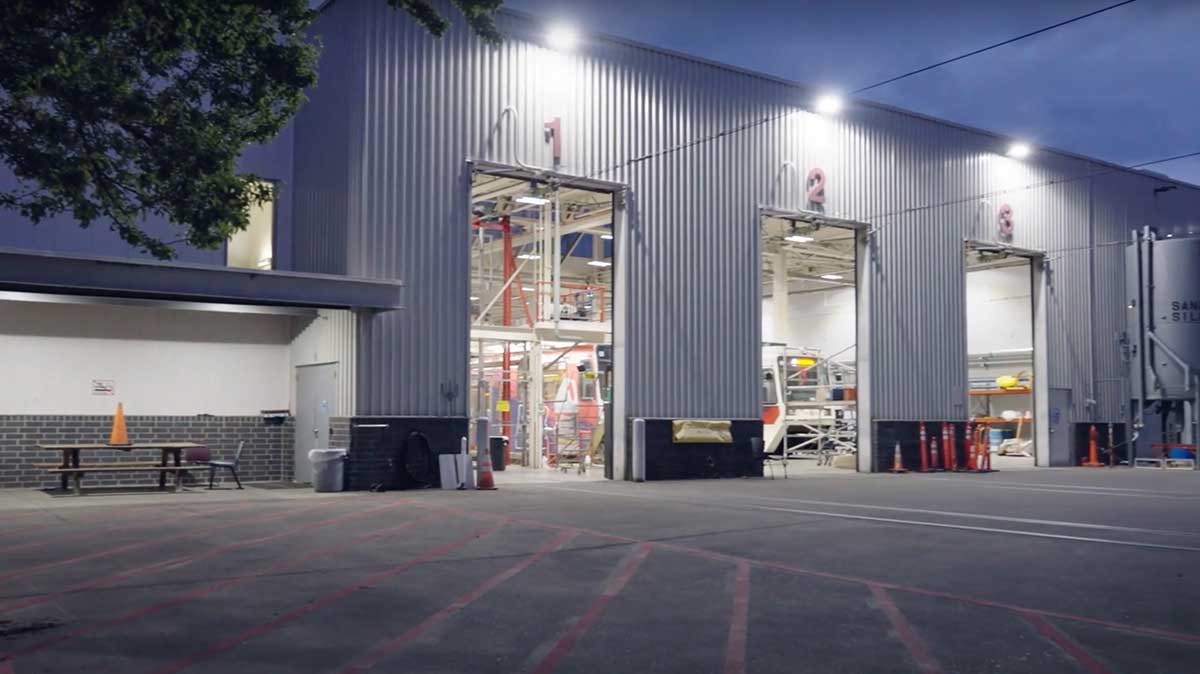
We are in the process of converting to energy-efficient LED lighting in most TriMet-owned facilities and properties. Initial conversion has effectively reduced energy consumption by 60%.
Recycling and materials management are a key part of our environmental program. This program, and our dedicated employees, ensure that we handle our waste disposal safely and responsibly. In addition to recycling all office materials, our operations and maintenance facilities recycle.
Completed
MAX Regenerative Braking
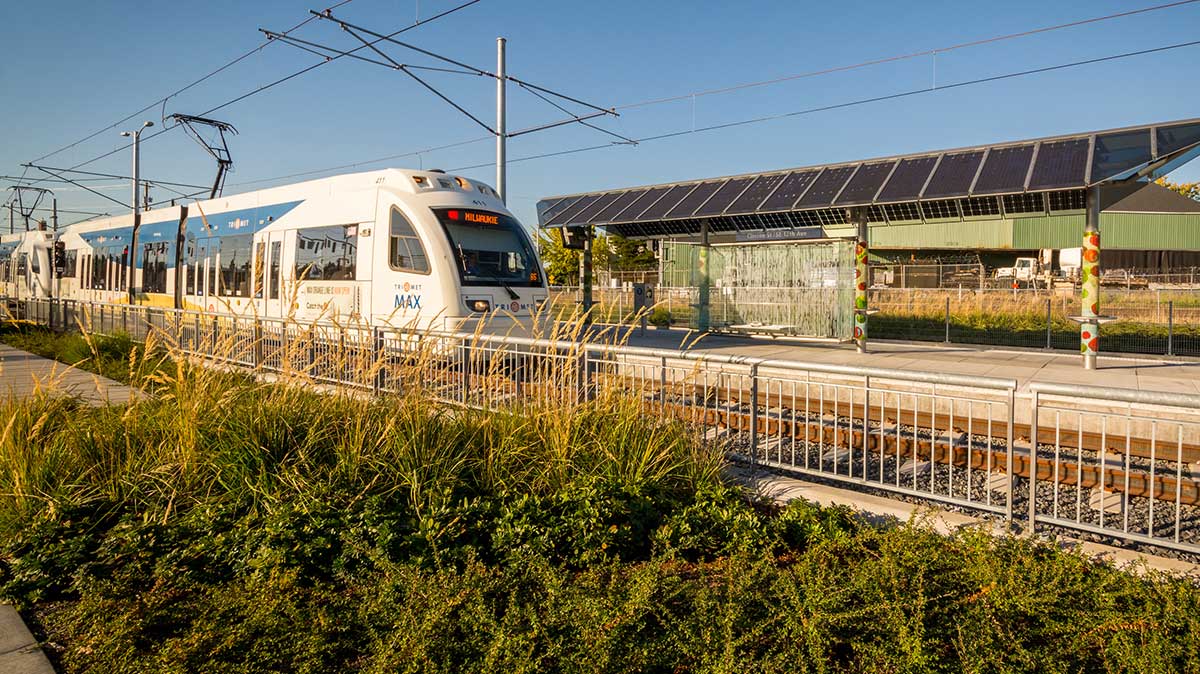
The energy created as MAX Orange Line trains brake — which would otherwise be lost as heat — is stored in supercapacitors and put back into the MAX system to keep voltage stable, reducing power outages that can cause service disruptions.

